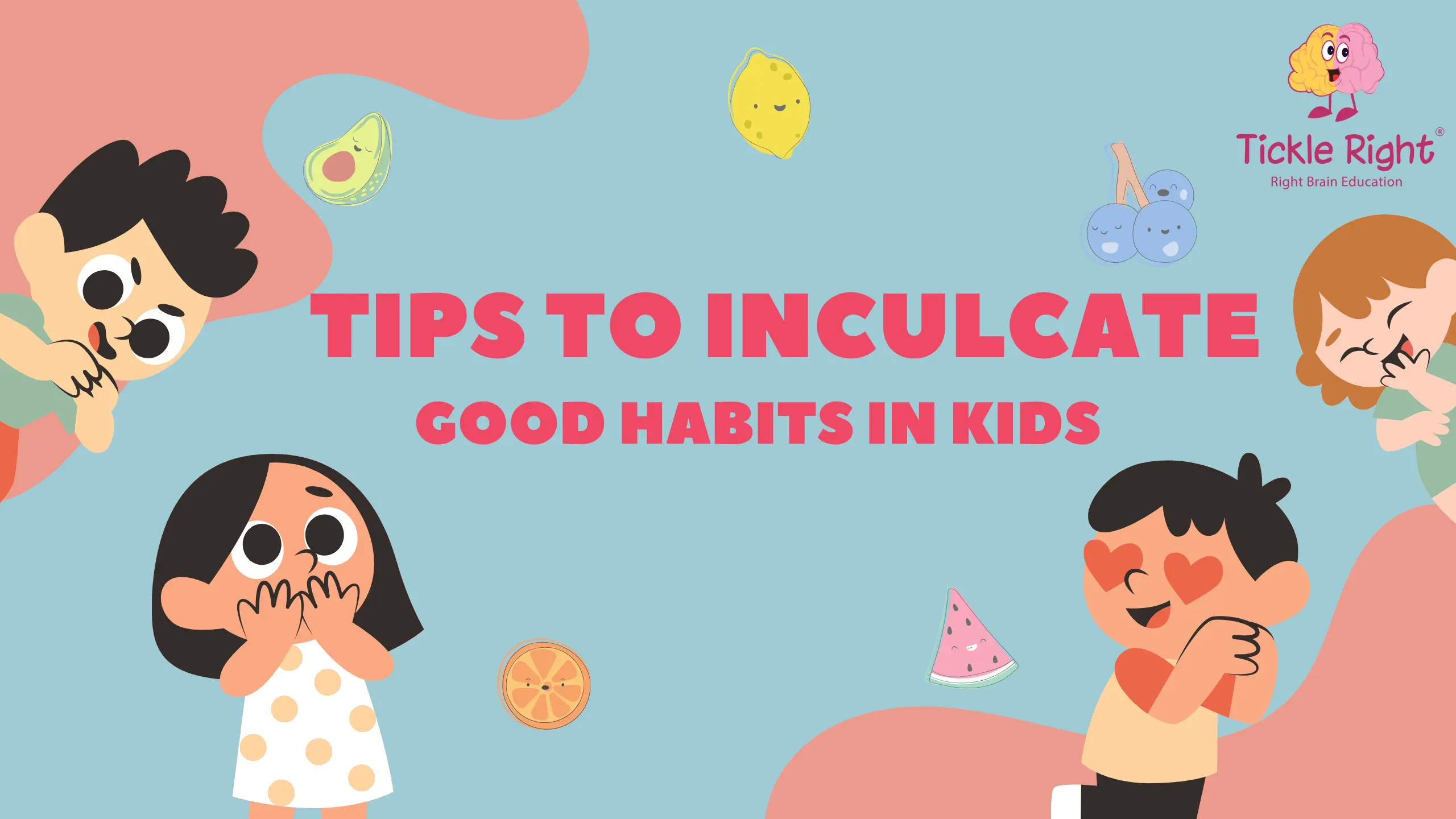Raising a 5-year-old is a whirlwind of curiosity, boundless energy, and constant learning. At this age, children are stepping into school life more independently, building friendships, and beginning to develop
Good Habits In Kids: Easy Tips To Inculcate It In Them
Fostering good habits in kids from an early age is essential. Good habits are actions that have positive consequences and are beneficial for the development of a child’s physical, mental, and emotional health.
Promoting good habits in kids might seem challenging as young children tend to pick up things quickly, whether good or bad. However, their environment and the people around them play vital roles in shaping young minds and cultivating good habits.
Here are some simple yet effective tips to help parents develop good habits in kids.
Tips to inculcate good habits in kids
As children grow, they often resist following instructions or rules when presented with tasks. However, during the early stages of the development of a child, it is much easier to instill good habits in kids effectively.
Create a “Good Habits Jar” filled with small notes. Each suggests a positive habit to practice. For example: “Brush your teeth twice a day.” “Place your shoes neatly when you get home.”
Let them pick a note each day and focus on practicing that habit. This makes learning fun and encourages responsibility creatively. You can also create a good habits chart.
Further, foster responsibility and accountability within them.
Teach Responsibility and Accountability
Responsibility is one of the essential habits in the development of a child. To inculcate responsibility and good habits to your child, you must hold them accountable for their actions. You can deny them screen time if they have not completed their homework. They must understand that there are consequences to their actions.
If they have completed a task that you have asked, reward them with good habits stickers (star or heart stickers). Let them collect those stickers in their journal or on their good habits chart if they wish.
Are your children glued to their screens? Here’s what you need to do.
Limit screen time to inculcate good habits in kids.
Screened devices have become a common part of our daily routine, but it is essential to limit screen time for kids to instill good habits in kids. Set clear boundaries for screen use and enforce them effectively as a house rule. Encourage children to engage in physical activities and reading as alternatives. Family members play a crucial role in the holistic development of a child so make mealtimes a family affair.
Avoid using cell phones during meals to help children learn and adopt healthy eating habits.
Good food is their best friend!
Teach children the importance of eating a healthy and balanced diet for their overall well-being. Eating habits play a significant role in nurturing good habits in kids. Make mealtimes exciting by introducing a “rainbow diet game,” for example, blueberries on a “Blue Monday” or apples on a “Red Tuesday,” turning healthy eating into a colorful adventure.
Encourage variety with fruits, leafy vegetables, milk, cheese, and other nutritious options to help them grow strong and healthy. Avoid using food as punishment or reward to promote a positive relationship with eating. By cultivating these habits, children chase the blues away with their good habits and vibrant energy.
Good habits in kids: Teach them the importance of good hygiene
Good hygiene plays a vital role in the overall development of a child. Since children are naturally observant and tend to mimic the actions they see. Setting a positive example is essential. Encourage good hygiene practices by praising their efforts and reinforcing the benefits of staying neat and clean. Make activities like handwashing and toothbrushing engaging by introducing catchy songs or fun rhymes. Habits such as brushing their teeth twice, washing their hands regularly, and wearing clean clothes will not only promote good habits in kids but also contribute to healthy personality traits, which will help them build their confidence even outdoors.
Public behavior as healthy habits
Though your child might follow and practice good habits indoors, it could be challenging to inculcate these habits and make them follow when they are out. Before going out, discuss the expected behavior (e.g., use indoor voices, no running in crowded areas). Teach them to practice politeness and act respectfully towards others. Practice greetings, sharing, and saying “please” and “thank you.” Following these, you can instill good habits in kids.
Sharing and Work Team
Teaching kids the values of sharing and teamwork is essential in the social development of a child. Use simple language to highlight benefits, like “Sharing makes everyone happy,” or “When we work together, we can finish faster and have more fun.” Encourage kids to share toys, snacks, or crayons during playtime. Guide children to resolve disputes over toys or turns by using phrases like, “Can I use it after you?” or “Let’s take turns.”
Money Management
Teach them young. Good habits in kids flourish when you teach them things when they are young. Start with basics: Teach kids the value of coins and bills. Use play money or real currency for hands-on learning. Give kids a regular allowance to teach them about earning and managing money. Help kids choose a savings goal, like buying a toy or a gift.
Bonus tip: Good Habits chart!
Children love games, and inculcating a love for learning is what we believe at Tickle Right. Make a fun good habits chart. Every time they complete a task on their good habits chart, reward them.
Conclusion
Instilling good habits in kids is a gradual process that requires patience, consistency, and creativity. By fostering responsibility, promoting healthy routines, and encouraging positive behaviors, parents can help their children develop essential life skills. These habits not only shape their childhood but also set them on the path to becoming responsible, well-rounded individuals. This further helps brain development in children.

